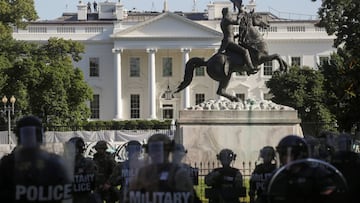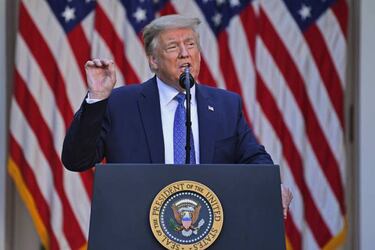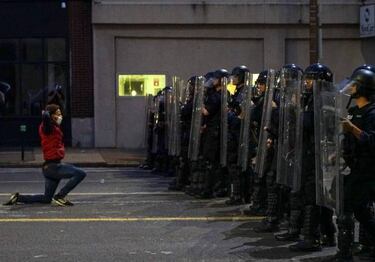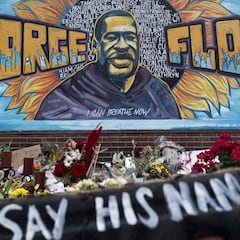George Floyd protests: is Trump allowed to send in US military?
President Donald Trump has said that he would deploy the United States military if states don't quell the riots, but some wonder if he is allowed to do that.

US President Donald Trump suggested on Monday that he would use federal troops to end unrest that has erupted following the death of George Floyd, an unarmed black man killed in police custody last week.
**Follow all the latest developments in the aftermath of the killing of George Floyd**
Trump threatens military action
'If a city or state refuses to take the actions that are necessary to defend the life and property of their residents, then I will deploy the United States military and quickly solve the problem for them,' Trump said during brief remarks at the White House.

The demonstrations have been largely peaceful, but police in some cities have used force against journalists and protesters, and protesters have clashed with police. Many US cities have set curfews, however, to deploy the armed forces, Trump would need to formally invoke a group of statutes known as the Insurrection Act.
What is the Insurrection Act?
Under the US Constitution, governors generally have the authority to maintain order within state borders. This principle is reflected in a law called the Posse Comitatus Act, which generally bars the federal military from participating in domestic law enforcement.
The Insurrection Act, which dates to the early 1800s, creates an exception to the Posse Comitatus Act. It permits the president to send in US forces to suppress a domestic insurrection that has hindered the normal enforcement of US law.
Can Trump choose to send in troops without governor approval?
The simple answer is, yes.

The law lays out a scenarios in which the president is required to have approval from a state's governor or legislature, and also instances where such approval is not necessary, said Robert Chesney, a professor of national security law at the University of Texas.
Has the Insurrection Act been invoked before?
Yes. The Insurrection Act has been invoked on dozens of occasions through US history. Since the civil rights movement of the 1960s, its use has become 'exceedingly rare,' according to a report by the Congressional Research Service.
The Insurrection Act was last used in 1992, when the acquittal of four Los Angeles police officers in the beating of black motorist Rodney King led to deadly riots.
Can courts overrule Trump's decision to invoke the Act?
Related stories
Chesney said a successful legal challenge to Trump's use of the law was 'very unlikely.' Courts have historically been very reluctant to second-guess a president's military declarations, he said.
'The law, for all practical purposes, leaves this to the president with very little judicial review with any teeth,' Chesney said.

